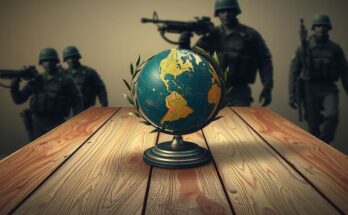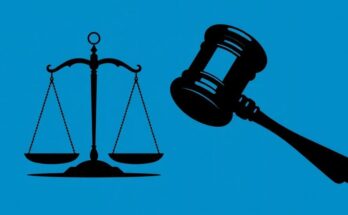- President Trump insists Iran’s nuclear program is obliterated.
- His tough persona requires a narrative that aligns with strength.
- The US military actions against Iran may lead to further conflicts.
- Reports reveal US strikes have likely only slowed Iran’s nuclear progress.
- Trump’s administration faces backlash for discrediting opposing views.
Trump’s strongman persona drives need for narratives
Two main reasons stand out as to why President Donald Trump is so adamant about the notion that Iran’s nuclear programme is obliterated. Firstly, there’s Trump’s own persona. He has crafted his presidency around an image of unyielding strength and fearless leadership. Information that clashes with this carefully constructed myth—like the idea that Iran still holds nuclear capabilities—simply doesn’t fit nicely into his narrative. Secondly, if evidence leaks out suggesting Iran has the means to manufacture nuclear weapons again, it places Trump in a precarious situation: would he be pushed to take military action? That could lead to an extended conflict, something he clearly wants to avoid, especially with his base of supporters that vigorously promotes the idea of putting America first and staying out of endless wars.
Media and Intelligence Responses Amplify Tensions
In the midst of mounting tensions, Trump and his inner circle have ramped up rhetoric, vehemently criticising media outlets that reported on a preliminary assessment by the Defense Intelligence Agency. This assessment suggested that US strikes on three of Iran’s facilities had not destroyed crucial components of its nuclear programme and only delayed progress by a matter of months. Trump defended the military operation at a NATO news conference, labelling it as an unprecedented success—‘obliteration,’ he said, boasting of the military’s unmatched capabilities. Meanwhile, Defence Secretary Pete Hegseth passionately condemned outlets like CNN and The New York Times for reporting what he perceived as damaging information. This kind of theatrics can only be described as an all-too-familiar image of Trump in front of a podium, using the media as a punching bag to divert attention from uncomfortable truths.
Need for Accurate Information Over Spun Narratives
As the situation has unfolded, the White House has attempted to bolster its claims with supportive statements from figures like Israel’s military chief and CIA Director John Ratcliffe, who indicated that Iran’s nuclear capabilities had indeed suffered substantial damage. However, these claims seem to fall short of the dramatic assertions Trump has made. His relentless quest to shape public narrative runs the risk of backfiring if facts don’t align. The response from the administration has been reactive and perhaps too emotional. This knee-jerk reaction raises eyebrows about the transparency and trustworthiness of the White House—how can Americans be sure of the veracity of Trump’s statement if there’s a frantic scramble to discredit opposing views? Instead, it might have served them better to stick to facts and avoid painting the administration into a corner, where any conflicting evidence could lead to the unraveling of their assertions.
In conclusion, President Trump’s absolute insistence that Iran’s nuclear program is destroyed feeds into a larger narrative he has been building throughout his administration. Whether or not this narrative holds up under scrutiny remains to be seen, and if credible evidence surfaces that contradicts his claims, the political implications could be significant. A careful, honest approach to the evolving situation might have spared the administration some of the current controversies, but it appears that the path forward is still riddled with uncertainty, not only regarding Iran’s nuclear ambitions but also how this affects diplomatic relations moving forward.




